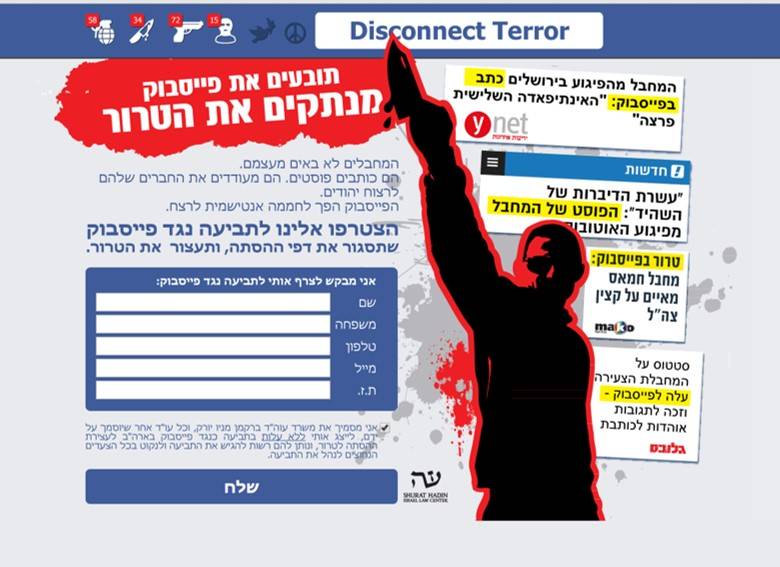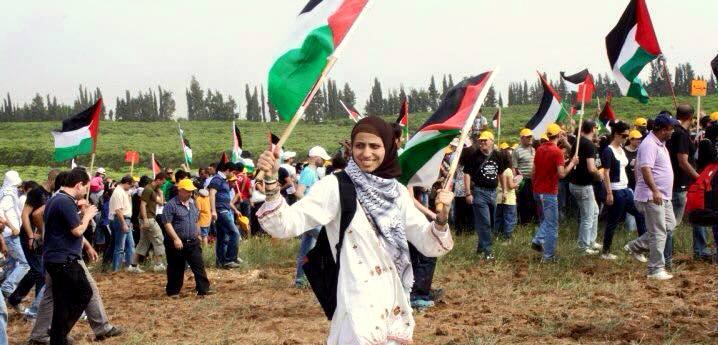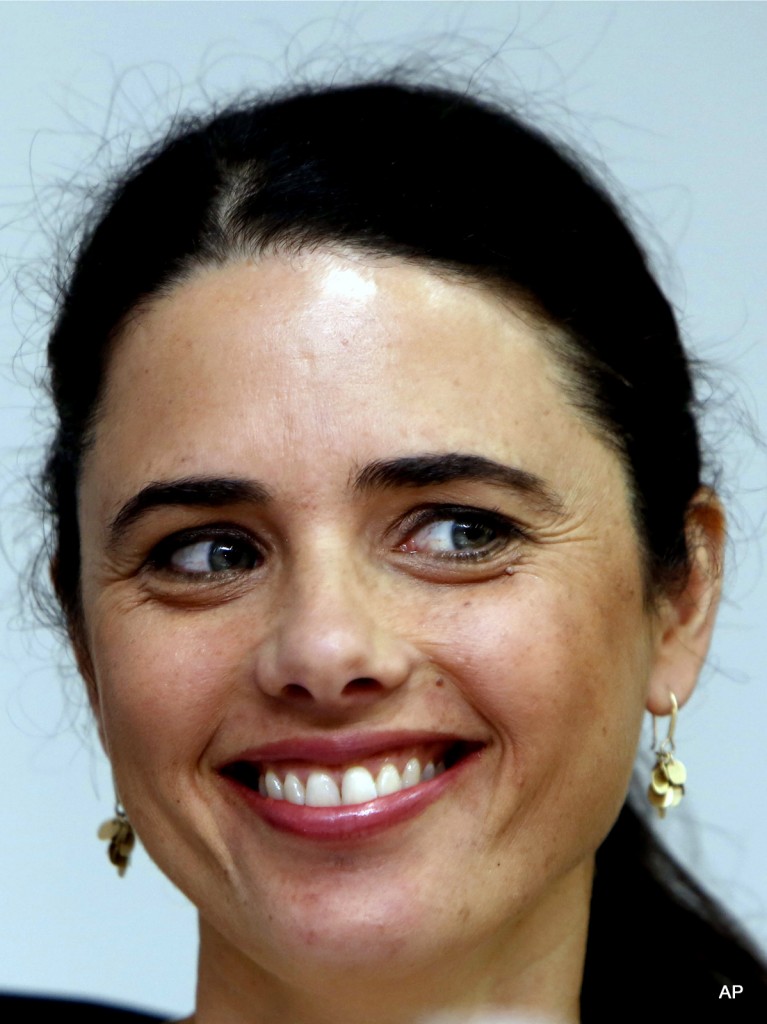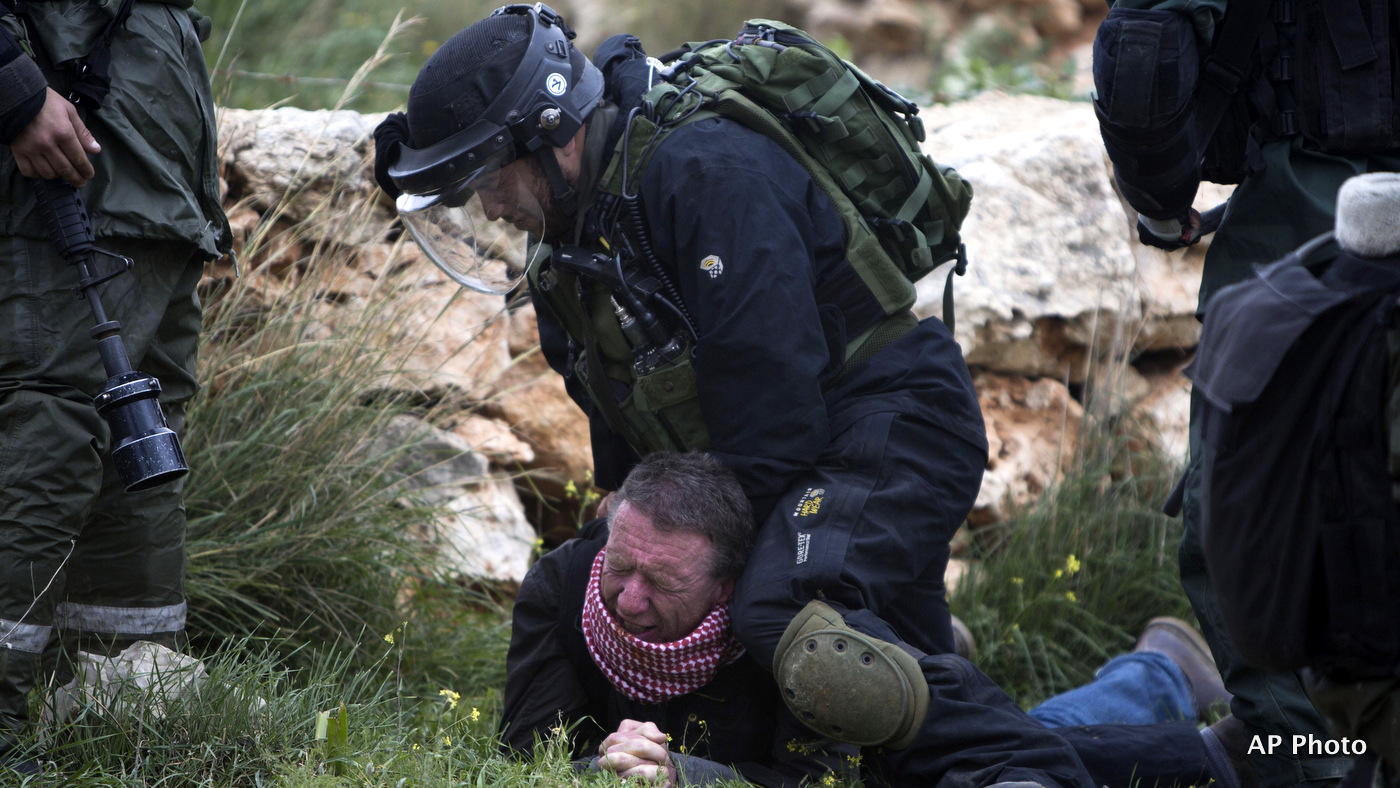Israeli police stopped a young Palestinian man on a Jerusalem street on Monday. In a video apparently shot by Israeli Jews at the scene, the police yell at the suspect to drop his pants. The man does not comply, but instead lifts his shirt and turns around to assure them he is not carrying a weapon or wearing a suicide vest. Unsatisfied with this gesture, police continue demanding that he disrobe.
A short standoff ensues as he refuses to remove his pants. Less than a minute passes before police surround the man and rush him. They begin beating him.
Then the video cuts to the victim lying on the ground with blood splattered on the floor and wall around him. An officer is sitting on top of him though he is handcuffed and makes no attempt to move.
The police notice someone is filming the events as they unfold, and they allow the filming to continue. (It’s worth noting that Palestinian journalists working in similar circumstances are assaulted and shot at by Israeli forces. And while the filming appears to be the work of Israelis, the video has been widely uploaded by Palestinians to social media.)
With the man held on the ground, police strip him down to his underwear. Police ask each other if anyone’s found a knife. They search the man’s bag, but don’t find a knife.
The lead officer stands above the victim and under the guise of “reconstructing” the event, clearly manufactures a fictional scenario contradicted by the actual video (translation and captions provided by Israeli activist Ronnie Barkan):
I’m for reconstructing [the event] …
He ran away to here; resisted [arrest];
We told him ‘raise’ [your hands/shirt] …
Ran from where?
Opened someone’s … He opened some woman’s head there;
We stopped in front of him;
We asked him to raise his shirt; He refused.
Attempted to assault an officer;
Arrest.
Who saw the attack [on the woman]?
Citizens.”
At the end of the video, the Israelis who filmed it begin calling the victim a “son of a bitch” in Arabic. Then they joke, seemingly proud that they filmed the beating of a Palestinian. Laughing derisively, one of them says: “We organized some incident for you, huh?”
The officer who suggests “reconstructing” the event invents details that never happened: The man didn’t run away. He was never asked to raise his hands. He raised his shirt voluntarily. He certainly never assaulted anyone.
According to Palestinian activist Younes Arar, the victim of the police beating is Omar Farouk Obaideya. He is a teaching assistant in the Physics Department at Birzeit University, where he is also pursuing a master’s degree.
From the dialogue, the police appear to be attempting to link Obaideya to an incident in which female Haredi tour guide was hit in the head by a bottle by a Palestinian man earlier in the day.
Yet even if the suspect in the attack is the same man in this video, he is unarmed when confronted by police and never acts in any way that may be construed as threatening or suspicious. And even if he was the perpetrator of the attack earlier in the day, this extrajudicial beating has no place in a democratic society. A democratic society observes the rule of law and justice, not the laws of the street or jungle.
The Zuckerberg intifada
Israeli leaders have identified a convenient scapegoat for what some are calling a “Third Intifada,” or popular uprising: Mark Zuckerberg. The Israeli lawfare NGO Shurat HaDin is suing Facebook, blaming the social media network for permitting young Palestinians to communicate with each other and coordinate their resistance.

Prime Minister Benjamin Netanyahu even invoked the Facebook CEO’s name in laying blame for the violence:
“What has been going on is due to the combination of the Internet and Islamist extremism,” Netanyahu said. “It has been Osama Bin Laden meets [Facebook founder] Mark Zuckerberg.”
The Shin Bet, Israel’s internal security agency, is playing its role in this charade by arresting Palestinian youth for their posts to Facebook and treating them as if they’d committed violent crimes.
The latest victim, according to an Israeli human rights activist, is Dareen Tatour, who has been held in jail since Oct. 10. On Monday, she was indicted for “incitement” and “supporting a terrorist organization.” Her incitement consisted of reciting a poem, “Resist, My People, Resist,” as the voice track of a YouTube video which pictures Palestinians burning tires, being harassed by police, waving Palestinian flags, and throwing stones.

The poem that apparently constitutes a criminal act if read aloud includes the following words:
I refuse the ‘peaceful solution’ [the Oslo process]
I will never lower my flag
I will pull them away from my land
And the future will see it.
Resist O my people resist them
Resist the tyranny of the settler …..
Follow the convoy of martyrs
Tear the shameful agreements
Of oppression and humiliation.”
Ironically, the Israeli right views the Oslo agreements with equal disdain, yet no Israeli is arrested for expressing such displeasure. According to this double standard, Palestinians who express virtually the same political views as Israelis are criminals and terrorists for doing so.
Tatour also posted a picture of the Israeli Palestinian woman shot and seriously wounded by Israeli police at the Afula bus station last month. It doesn’t matter that Isra’a Abed, the Afula victim, has been cleared by the same Israeli security officials of any criminal intent.
The Zionist version of a moral apartheid
Israel’s Knesset has been increasingly clamping down on human rights NGOs, who are viewed as collaborating with “foreigners” intent on charging the Israeli military with war crimes. Former foreign minister Avigdor Lieberman has in the past demanded that NGOs receiving funds from foreign foundations be forced to reveal their sources publicly.

Right-wing NGOs, which also receive foreign funding, often refuse to disclose their funding sources. Presumably, if this legislation passed some sort of loophole would be offered to groups like NGO Monitor and others which maintain secret donor lists.
Ayelet Shaked, the justice minister, proposed legislation on Sunday which would require any NGO staff member visiting the Knesset to wear a “tag” that identifies them as recipients of foreign funding. It’s part of what Shaked calls a “Transparency Law” that permits Israelis to see the origin of funding for groups which allegedly betray the state.
Writing for AL Monitor, Mazal Mualem calls it “a ‘mark of Cain’ of sorts, a far more appropriate name for [Shaked’s] proposed piece of populist legislation could be the ‘Selection Law,’ a reference to the way Jews were marked to distinguish them from other Europeans during World War II in Nazi camps.”
In the brave new world offered by Israel’s right-wing government people are either good or bad, friends or enemies, Israelis or Palestinians, Israelis or foreigners. The bad guys are clearly labeled so that there can be no mistaking them for the good guys. This is a Zionist version of moral apartheid.
Shaked’s proposal would be ridiculous if it didn’t rear its ugly head in the context of the enormous level of hate and violence which besets Israel these days.
Top Photo | An Israeli border policeman detains a protester during a weekly demonstration against Israel’s apartheid wall in the West Bank village of Bilin near Ramallah, Friday, Feb. 13, 2015.


